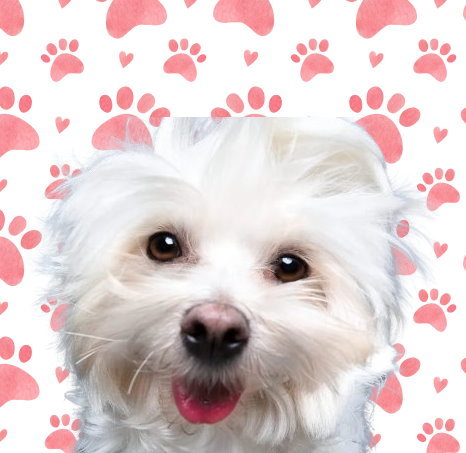Welcome to Dog Training Newbies !
Welcome to Dog Training Newbies !

As your Maltese enters their senior years, their needs begin to change, requiring special attention and care. This charming and affectionate breed deserves the best as they age, and understanding how to address their evolving needs is crucial to ensuring their comfort and happiness.
One of the primary considerations for senior Maltese care is diet. As they age, their metabolism slows, and they may require fewer calories. A diet rich in high-quality protein, essential fatty acids, and antioxidants can support their overall health and well-being. Foods that promote joint health, such as those containing glucosamine and omega-3 fatty acids, are particularly beneficial for older dogs. It's important to consult your veterinarian to tailor a diet that meets the specific needs of your aging pet.
Regular veterinary check-ups become even more critical as your Maltese ages. These visits help monitor their health and catch potential issues early. Common health concerns in senior Maltese include dental disease, heart problems, and arthritis. Routine exams, dental cleanings, and screenings for heart health can help manage these conditions effectively. Keeping up with vaccinations and parasite prevention is also essential to protect your dog from illnesses.
Exercise is still important for senior Maltese, but it should be adjusted to their abilities. While they might not have the same energy levels as before, regular, gentle exercise helps maintain muscle tone and joint flexibility. Short walks and low-impact activities can provide both physical and mental stimulation. Always pay attention to signs of fatigue or discomfort and adjust their routine accordingly.
Creating a comfortable and safe living environment is key to enhancing your senior Maltese's quality of life. Provide a soft, supportive bed to ease joint pain, and ensure their resting area is easily accessible. You might need to use ramps or pet stairs to help them navigate furniture or steps safely. Keeping their living space free from hazards reduces the risk of falls or injuries.
Mental stimulation remains important for aging Maltese. Engage them with interactive toys, gentle training sessions, and activities that challenge their cognitive abilities. Keeping their mind active helps prevent cognitive decline and provides enrichment. Social interaction is also crucial, so continue involving them in family activities and provide opportunities for safe play with other dogs.


Monitoring your dog's behavior and physical condition is vital for identifying any changes that may indicate health issues. Look for signs such as increased thirst, changes in appetite, or unusual lethargy. Early detection of symptoms can lead to more effective treatments and better outcomes for your pet.
As your Maltese ages, they may experience sensory changes, including diminished vision or hearing. Be patient and make adjustments to accommodate these changes. Use hand signals or touch to communicate, and ensure their environment is safe and secure to prevent accidents.
Pain management is another important aspect of senior care. Arthritis and other age-related conditions can cause discomfort, so consult your veterinarian about appropriate pain relief options. They may recommend medications, physical therapy, or alternative treatments such as acupuncture to improve your dog’s quality of life.
Finally, shower your senior Maltese with love and attention. As they age, they may become more dependent on your companionship and reassurance. Spend quality time together, whether through gentle grooming sessions, cuddling, or simply sitting together. Your presence provides comfort and strengthens the bond you share.
In conclusion, caring for a senior Maltese involves a comprehensive approach that addresses their changing nutritional, physical, and emotional needs. By adapting their diet, ensuring regular veterinary care, providing appropriate exercise, and maintaining a stimulating environment, you can enhance their quality of life. With patience and dedication, you’ll ensure your loyal companion enjoys their senior years with comfort and happiness.